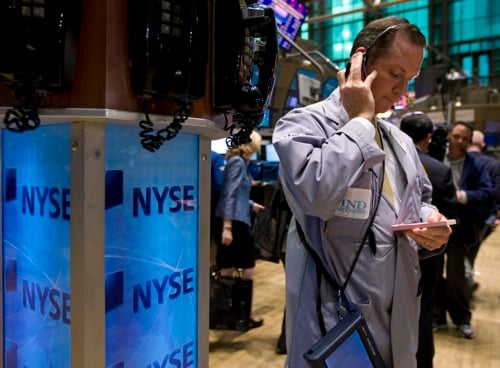Billionaire investor Wilbur Ross said he is buying assets as the global market declines are being driven by fear rather than economic reality.
There are plenty of assets one can buy today in emerging markets including China and India as well as Japan and Ireland which will prove attractive over the next several years, Ross, who leads WL Ross & Co., told Bloomberg Television. He's backing companies in the marine petroleum transport and gas industries in the U.S.
Ross joins Templeton Asset Management's Mark Mobius and Marc Faber, publisher of the Gloom, Boom & Doom report, who said they see opportunities in oversold markets. The MSCI World Index has declined almost 7 percent since Aug. 4, the day before Standard & Poor's downgraded the U.S.'s long-term sovereign debt rating that added to investor pessimism.
“Has the world really gotten 10, 12, 15 percent worse in the last 48 hours? I don't think so,” Ross said. “
Buying stocks at today's prices over a couple of years' time period will prove to be a uniquely rewarding experience.”
S&P's downgrade was “the right call” and “very courageous,” Harvard University economist Kenneth Rogoff said in a separate Bloomberg TV interview today. Other rating companies are likely to follow suit in due time, Rogoff said.
WL Ross specializes in reorganizing distressed companies. Ross, 73, founded the New York-based company in 2000 after overseeing the bankruptcy practice at Rothschild Inc.
‘Pecking Away'
The firm has been looking at the companies it holds and that are available for trading, Ross said.
“We bought some on Friday, we bought some more today; we will probably buy more when New York opens again tomorrow,” he said, speaking from Los Angeles, in the interview that was aired in Asia today. “We've been pecking away as things decline.”
Mobius, executive chairman of Templeton's emerging markets group, said on Aug. 5 that equities in developing markets looked more attractive amid the turmoil in global markets. Faber told Bloomberg TV yesterday that the stock markets were “incredibly oversold” and were “quite likely to bottom out today or tomorrow and begin to rally.”
The MSCI Asia-Pacific Index dropped 4 percent as of 1:11 p.m. Tokyo time today.
“Forced involuntary selling” by investors who face margin calls from banks after the value of the stocks they held declined sharply has contributed to market losses, Ross said.
There's “a good probability” that the U.S. Federal Reserve will institute another round of quantitative easing policies to stimulate the economy as oil prices have fallen and unemployment remains high, Ross said.
Fed Easing
The Fed is expected to act “more decisively” to stabilize the economy, Rogoff said. A new round of easing policies should come with clear statements that they're trying to create moderate inflation, instead of propping up the stock market, he added.
Single-B-rated junk bonds performed worse than stocks yesterday and may do so today, Ross said. The risk-averse phenomenon usually indicates investors are getting close to “the point of capitulation” and things can get back to being more normal after that, he said.
Ross said he likes Ireland as the investment community has misclassified the country, which doesn't need structural reform and only needs to repay the debt incurred during its banking crisis.
China's property market is not headed for a crash akin to the U.S. because of a shortage for housing, low loan-to-value ratio and families' willingness to step in to help repay mortgages, he said. A bigger test for the government will be its ability to contain rising food costs, which account for a large percentage of household budgets in the low-per-capita-income economy, he added.
--Bloomberg News--







